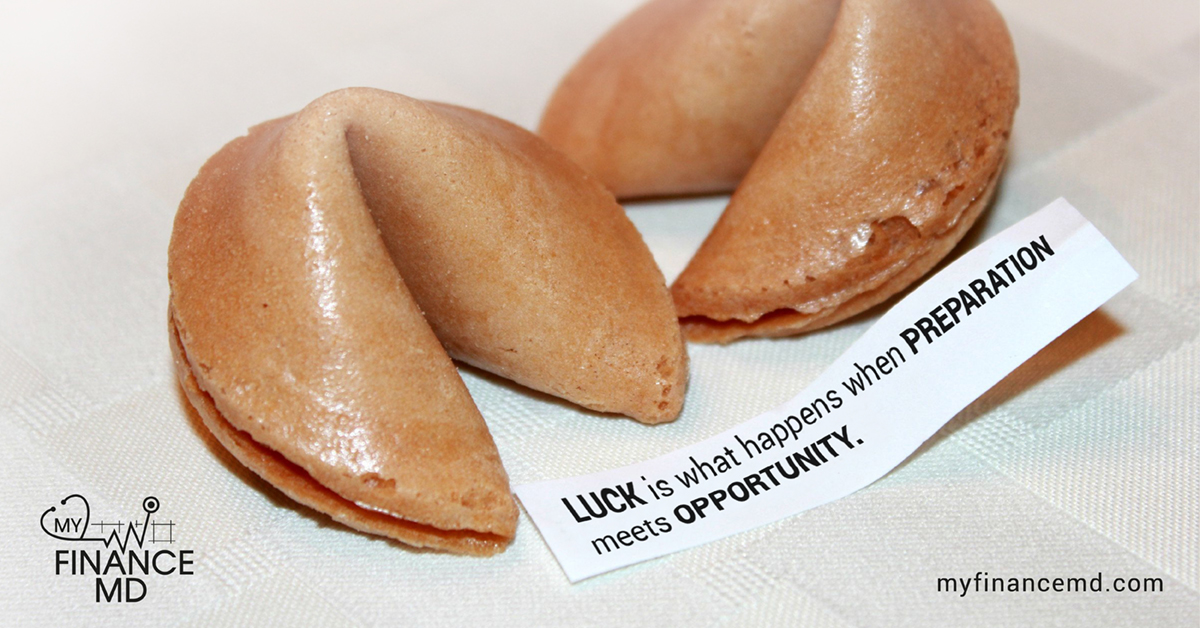 People have searched ways on improving their good fortune in their lives since the beginning of time. Lucky charms, amulet, talismans, are all found in human history.
People have searched ways on improving their good fortune in their lives since the beginning of time. Lucky charms, amulet, talismans, are all found in human history.
Professor Richard Wiseman conducted a ten-year scientific study into the nature of luck as published in “Skeptical Inquirer” last 2003.”
He advertised in a newspaper, asking for volunteers. Four hundred (400) lucky and unlucky people came and allowed their lives to put under his microscope. After the research it revealed that lucky people generate their own fortune with four (4) basic principles:
1. They notice opportunities more
Wiseman gave the participants a newspaper, and asked them to look through it and tell him how many photographs are inside.
The result was, on the average, the unlucky people took about two minutes to count the photographs whereas, the lucky people took just seconds. Why? Because the second page of the newspaper contained the message “Stop counting – There are 43 photographs in this newspaper.” This message took up half of the page and was written in type that was over two inches high. It was staring everyone straight in the face, but the unlucky people tended to miss it and the lucky people tended to spot it.
The harder they looked, the less they saw. And so it is with luck – unlucky people miss chance opportunities because they are too focused on looking for something else. They go to parties intent on finding their perfect partner and so miss opportunities to make good friends that could eventually be a future partner.
Lucky people are more relaxed and open, and therefore, see what is there rather than just what they are looking for.
2. They are skilled at creating and listening to intuition
Apple co-founder Steve Jobs said, “Intuition is more powerful than intellect.”
Being a medical physician, I took so many tests in my life including two major board examinations in the country and passed. When reviewing for board exams, there is such thing as “test manship skill” where you do intelligent guesses if you do not know the answers. Our professors would always point out to us that, “if you really do not know the answer, choose the first answer that comes to mind. Your first answer is almost always the correct one.” And that turns out really true. Every time I choose the second answer, I am almost always wrong.
Wiseman treats intuition as a matter of accessing and processing useful information at a less than conscious level. A hunch could be based on facts you previously heard but don’t consciously recall. A hunch on good investment could be an example.
How do you enhance your intuition? Start by noting your intuitive hunches. When you focus on something, your brain classifies it as important and bring to your attention similar things in the future. You notice more of what you focus on.
Steve Gilman of Pennyhoarder said you have to distinguish feelings from hunches. Feelings come from stress and fear while hunches or intuition arise naturally when you’re more relaxed. So do meditate or do stress-relieving exercises to allow more relaxed and intuitive state. Wiseman said, that research has shown that anxiety disrupts people’s ability to notice the unexpected.”
3. They Create Good Luck for Bad Luck
Wiseman presented his lucky and unlucky people with some unlucky scenarios and see how they reacted.
Wiseman asked lucky and unlucky people to imagine that they were waiting to be served in a bank. Suddenly, an armed robber enters the bank, fires a shot, and the bullet hits them in the arm. Would this event be lucky or unlucky?
Unlucky people tended to say that this would be enormously unlucky and it would be just their bad luck to be in the bank during the robbery. In contrast, lucky people viewed the scenario as being far luckier, and often spontaneously commented on how the situation could have been far worse. As one lucky participant commented, “It’s lucky because you could have been shot in the head” – also, 4 of 5 said “they could sell their story to the newspapers and make some money.”
Lucky people can actually turn their bad luck into good luck. Richard Branson in his book, “Screw It, Let’s Do it,” tells the story when he and his wife were in the Virgin Islands and their flight to Puerto Rico was canceled. Some people got so angry and began complaining. Some people just sat there and call it a bad luck.
Branson saw the passengers around him, complaining, but instead of joining them, he paid $2,000 to charter a plane for a flight to Puerto Rico. He wrote “Virgin Airways’ on a chalkboard and started collecting $39 fares from impatient travelers. That was his inspiration for starting his Virgin Atlantic airline few years later. That airline gave him a net worth of $5 billion according to Forbes.
4. They have the Right attitude
Research suggests that athletes who win bronze medals are actually happier than those who win silver medals. And the reason for this has to do with the way in which the athletes think about their performance. The silver medalists focus on the notion that if they had performed slightly better, then they would have perhaps won a gold medal. In contrast, the bronze medalists focus on the thought that if they had performed slightly worse, then they wouldn’t have won anything at all. Psychologists refer to our ability to imagine what might have happened, rather than what actually did happen, as “counter-factual.”
Another is, “Lucky people prepare for the worst, but they expect the best.”
When one life insurance client of mine died of cancer, I heard one friend tells the other. He is lucky he got life insurance.
That client did not leave his future to chance. Yes, he had a lot of dreams but he knew and acknowledged that he is ultimately not in control of how long he is going to live. That’s the reason he got the life insurance in the first place. He is consciously doing something to prevent bad luck from happening. If he did not have any life insurance at all when he died, it is surely pure bad luck for his family.
Professor Wiseman wondered whether the principles he uncovered in his research could increase the amount of luck the person could encounter in their lives.
To find out, he created the “Luck School“ – a series of experiments of examining people’s luck and telling them to apply the principles above. The results were dramatic. 80% of people are now happier, more satisfied with their lives. Unlucky people become lucky, and lucky people became luckier.
The study ultimately demonstrates that good and bad fortune we encounter is a result of our thoughts and behavior. It’s fine if you have these lucky charms, but to be intentionally lucky you need to: be open to more opportunities, learn how to turn your bad luck into an opportunity, have the right attitude and be skilled at creating intuition. You are holding your luck in your hands.
Let me ask you before I end this post. Are you Lucky or Unlucky? It’s your choice. Take charge of your lives.
Want to join my luck school? Create luck in your financial life, contact me here for free financial advice. Let’s do something intentionally for your future.
Be Intentionally Lucky,

Read More:
- The Best Time of the Year to Buy Everything (Philippines)
- Best Budgeting APP Guaranteed to Make Your 2016 Easier
- Buti pa ang Kotse Insured, Eh Ikaw?
- Top 10 Life Insurance Companies in the Philippines 2015
Sources:
http://www.richardwiseman.com/resources/The_Luck_Factor.pdf
The Pennyhoarder
Latest posts by Pinky De Leon-Intal, MD, RFC (see all)
- Say Goodbye to Chronic Lifestyle Diseases (Hypertension, Diabetes, Cancer, Gout, etc.) with Right Food and Right Water - 23 May, 2023
- Embracing Superpowers: A Mom’s Journey as a Doctor, Professor, and Financial Consultant - 19 May, 2023
- Celebrating the Power of Women: Honored by Philippine Daily Inquirer - 17 May, 2023

